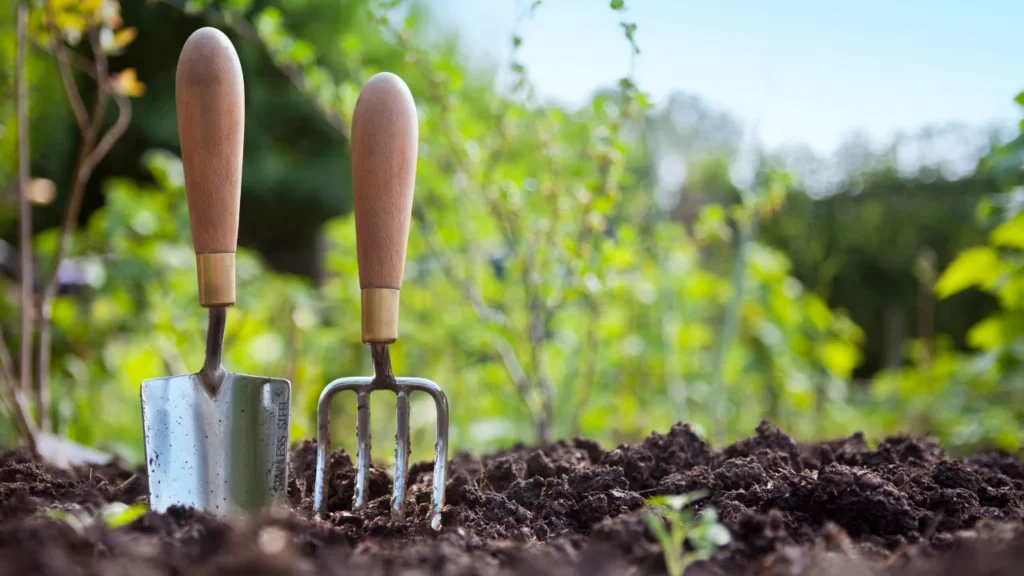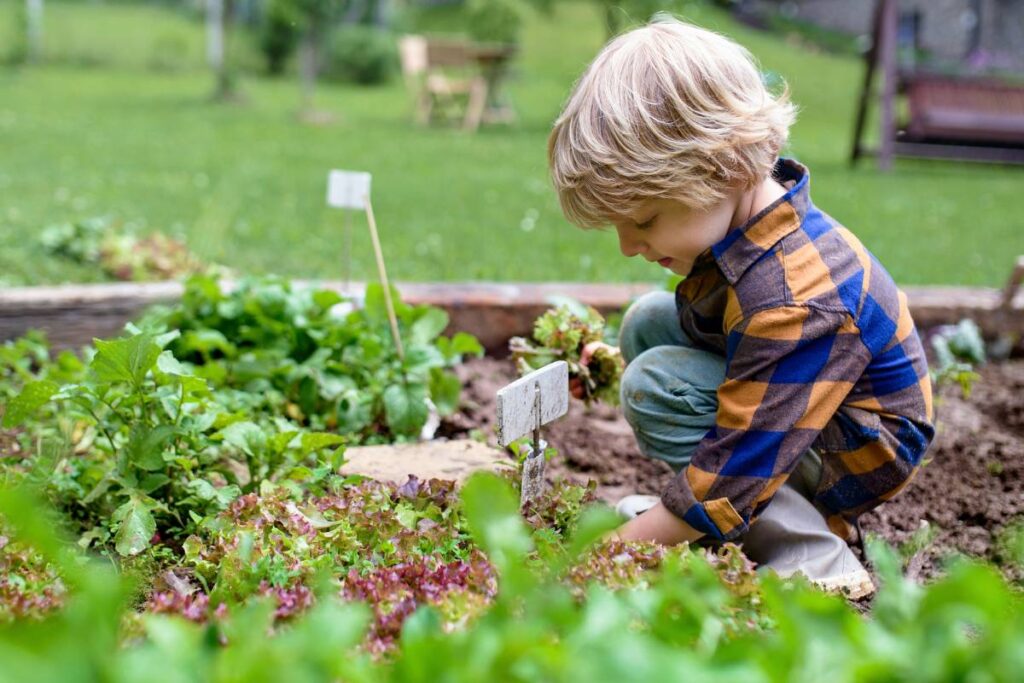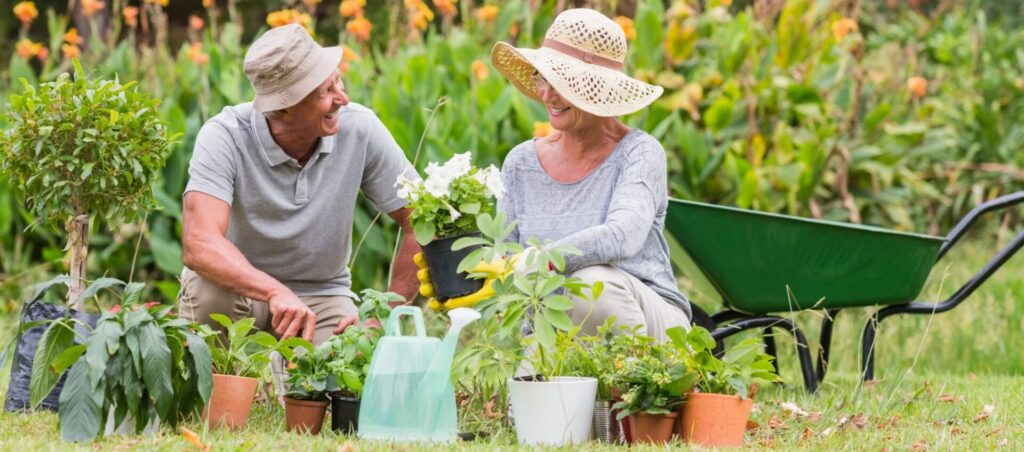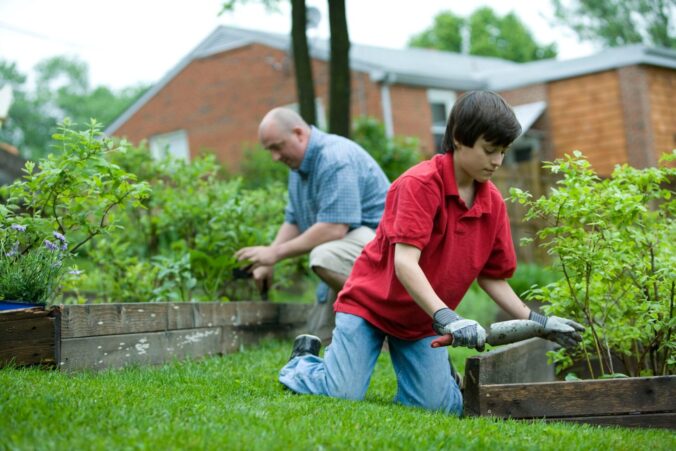Gardening is not merely a hobby or a pastime; it is a profound form of therapy that nurtures the mind, body, and soul. Engaging with nature through planting, nurturing, and harvesting has been proven to have a myriad of therapeutic benefits, from reducing stress and anxiety to promoting physical health and emotional well-being. In this article, we delve into the transformative power of gardening and explore how it can enrich our lives on multiple levels.
Gardening as a Stress Reliever:

Gardening offers a serene escape from the hustle and bustle of modern life. Tending to plants, feeling the soil between your fingers, and watching seeds sprout into vibrant life can be incredibly soothing. The rhythmic tasks of watering, weeding, and pruning provide a sense of mindfulness, grounding us in the present moment and allowing our worries to melt away. Research has shown that spending time in green spaces can lower cortisol levels, the hormone associated with stress, thereby promoting relaxation and calmness.
Additionally, gardening encourages physical activity, which is known to reduce stress and improve overall well-being. Digging, planting, and carrying bags of soil may seem like simple tasks, but they engage various muscle groups and contribute to a healthy lifestyle. Furthermore, exposure to natural sunlight while gardening stimulates the production of serotonin, the neurotransmitter responsible for regulating mood, further enhancing the therapeutic effects.
Gardening also fosters a sense of community and connection. Many gardening enthusiasts participate in community gardens or share their produce with neighbors, fostering a sense of camaraderie and belonging. The act of caring for plants together can strengthen social bonds and provide emotional support, further reducing feelings of isolation and loneliness.
Homeschooling in Bettendorf has seen families come together through gardening, where parents and children cultivate not just plants but also lasting friendships, contributing to a vibrant sense of community and connection.
Gardening for Mental Health:
The act of nurturing living organisms can have profound effects on mental health. Watching plants grow and thrive under our care instills a sense of accomplishment and purpose. This sense of responsibility and connection to nature is especially beneficial for individuals struggling with depression or anxiety. Gardening provides a tangible way to channel negative emotions into positive actions, fostering a sense of hope and resilience.
Moreover, the sensory experience of gardening can be incredibly therapeutic. The scent of flowers, the texture of leaves, and the sound of birdsong create a multisensory environment that engages our senses and uplifts our spirits. Studies have shown that exposure to nature can improve cognitive function and attention span, making gardening an effective tool for managing symptoms of attention deficit disorders and enhancing overall mental clarity.
Gardening can also serve as a form of therapy for individuals dealing with trauma or grief. The act of nurturing new life can provide a sense of renewal and healing, helping individuals process their emotions and find solace in nature. Whether it’s planting a memorial garden in honor of a loved one or tending to a plot of land as a form of self-care, gardening offers a safe and nurturing space for emotional expression and healing. This therapeutic process mirrors the comforting privacy and protection provided by blinds in Colorado Springs.
Gardening for Physical Health:
In addition to its mental and emotional benefits, gardening also promotes physical health and well-being. The physical exertion involved in gardening helps to strengthen muscles, improve flexibility, and increase cardiovascular fitness. Tasks such as digging, planting, and weeding provide low-impact exercise that can be enjoyed by individuals of all ages and fitness levels.
Furthermore, growing your own fruits and vegetables encourages healthier eating habits. Freshly harvested produce is not only more nutritious but also free from harmful pesticides and preservatives. By cultivating a diverse array of plants in your garden, you can ensure a steady supply of wholesome ingredients for your meals, promoting overall health and vitality.
Gardening also provides an opportunity for individuals with disabilities or chronic illnesses to engage in meaningful physical activity. Adaptive gardening tools and techniques make it possible for people of all abilities to participate in gardening activities, promoting independence, mobility, and a sense of accomplishment. Whether it’s raised beds for wheelchair users or vertical gardens for individuals with limited mobility, gardening can be tailored to suit a wide range of needs and abilities, incorporating promotional products that enhance accessibility and inclusivity.
The Healing Power of Horticultural Therapy:

Horticultural therapy is a specialized form of treatment that harnesses the therapeutic benefits of gardening to improve physical, mental, and emotional well-being. This holistic approach combines horticulture with proven therapeutic techniques to address a wide range of health issues, from chronic pain and physical disabilities to trauma and mental illness. Participants in horticultural therapy programs engage in various gardening activities tailored to their specific needs, under the guidance of trained therapists.
Through hands-on gardening experiences, individuals develop valuable skills such as problem-solving, decision-making, and goal-setting, which can translate into greater independence and self-confidence in other areas of their lives. Moreover, horticultural therapy promotes a sense of connection to the natural world, fostering feelings of peace, harmony, and belonging. Whether planting seeds, pruning plants, or harvesting vegetables, participants experience a profound sense of accomplishment and joy as they witness the tangible results of their efforts.
In addition to its therapeutic benefits for individuals, horticultural therapy also has positive impacts on communities and society as a whole. By promoting social interaction, communication, and teamwork, horticultural therapy programs strengthen community bonds and foster a sense of unity among participants. Furthermore, by cultivating gardens in urban areas and underserved communities, horticultural therapy initiatives contribute to environmental sustainability and food security, while also beautifying neighborhoods and improving quality of life. These initiatives may create opportunities for collaboration with emergency restoration services in Charlotte, facilitating the provision of green spaces for stress relief and healing during emergencies.
Cultivating Community through Community Gardens:
Community gardens serve as vibrant hubs of social interaction, bringing together people from diverse backgrounds to share knowledge, resources, and experiences. These communal green spaces provide a platform for collaboration, cooperation, and connection, fostering a sense of belonging and unity within neighborhoods and communities. By working together to tend to shared plots of land, participants in community gardening projects forge meaningful relationships, strengthen community bonds, and promote environmental stewardship.
Community gardens also serve as valuable educational resources, offering workshops, classes, and events that empower individuals to learn new skills and cultivate a deeper understanding of sustainable living practices. From teaching children about the life cycle of plants to providing seniors with opportunities for social engagement and physical activity, community gardens offer something for everyone. By fostering a sense of ownership and pride in their shared green spaces, community gardeners become stewards of their local environment, advocating for green spaces and sustainable practices in their communities. Even amidst the backdrop of luxury rentals that dominate the urban landscape, these gardens stand as beacons of community resilience and environmental stewardship.
Therapeutic Landscapes: Designing Gardens for Healing Environments:
Therapeutic landscapes are designed with the specific goal of promoting health, healing, and well-being. These thoughtfully planned outdoor spaces incorporate elements such as sensory gardens, healing gardens, and restorative landscapes to create environments that support physical, emotional, and spiritual wellness. By integrating features such as wheelchair-accessible pathways, calming water features, and aromatic plants, therapeutic landscapes provide respite from the stresses of everyday life and encourage relaxation and rejuvenation.
Whether located in healthcare facilities, residential communities, or public parks, therapeutic landscapes offer sanctuary for individuals seeking solace, comfort, and healing amidst the beauty of nature. In healthcare settings, therapeutic landscapes play a vital role in patient care, providing spaces for reflection, meditation, and therapeutic activities that complement traditional medical treatments. By immersing patients in natural surroundings, therapeutic landscapes promote healing and recovery, while also reducing stress and anxiety for patients, families, and caregivers alike. For instance, a serene garden equipped with the best Japanese scissors can facilitate therapeutic horticulture sessions, fostering a sense of purpose and accomplishment among participants.
Gardening as a Form of Self-Expression and Creativity:
Gardening is a deeply personal and creative endeavor that allows individuals to express themselves and cultivate beauty in their surroundings. Whether designing a flowerbed, arranging a bouquet, or crafting a miniature landscape, gardeners have the opportunity to unleash their creativity and create something uniquely their own. The act of gardening fosters a sense of pride and accomplishment as individuals watch their visions come to life and their gardens flourish. Soft washing in St. Augustine becomes the final touch, gently renewing and revitalizing the vibrant colors of their outdoor oasis.
Moreover, gardening encourages experimentation and innovation, as gardeners explore different plant combinations, colors, and textures to create harmonious and visually stunning landscapes. By nurturing their creativity through gardening, individuals can find joy, fulfillment, and self-expression in every leaf and petal. From novice gardeners to seasoned horticulturists, gardening offers endless opportunities for artistic expression and personal growth, enriching lives and communities in the process. Just as avid anglers eagerly anticipate the fishing forecast for optimal conditions, gardeners eagerly await the weather report for ideal planting and tending conditions.
The Role of Gardening in Ecotherapy and Environmental Conservation:

Ecotherapy, also known as nature therapy or green therapy, is a therapeutic approach that emphasizes the connection between human health and the natural environment. Gardening plays a central role in ecotherapy, serving as a means of reconnecting with nature, restoring ecological balance, and fostering environmental stewardship. By engaging in gardening activities such as composting, recycling, and water conservation, individuals can reduce their ecological footprint and contribute to the preservation of biodiversity and natural resources.
As part of ecotherapy’s emphasis on holistic wellness, initiatives promoting sustainable products like robes for women can further deepen the connection between humans and nature, fostering a sense of environmental stewardship and well-being.
Furthermore, gardening provides opportunities for environmental education and awareness, empowering individuals to become advocates for sustainable living practices and agents of positive change in their communities. Through hands-on experiences in the garden, individuals gain a deeper appreciation for the interconnectedness of all living things and the importance of preserving and protecting our planet for future generations. By embracing gardening as a form of ecotherapy, individuals can cultivate a deeper connection to the natural world and play an active role in promoting environmental conservation and sustainability. Those seeking to explore nature beyond their garden can easily rent a car in Sarajevo to embark on eco-friendly adventures and further immerse themselves in the beauty of the world around them.
Conclusion:
In conclusion, gardening offers a myriad of therapeutic benefits that extend far beyond the simple act of planting seeds and tending to plants. From horticultural therapy programs and community gardens to therapeutic landscapes and creative self-expression, the therapeutic potential of gardening is vast and multifaceted. By embracing gardening as a means of healing, self-discovery, and environmental conservation, individuals can cultivate healthier, happier, and more sustainable lifestyles. So whether you’re digging in the dirt or simply basking in the beauty of a blooming flower, remember that the healing power of gardening is always within reach.

